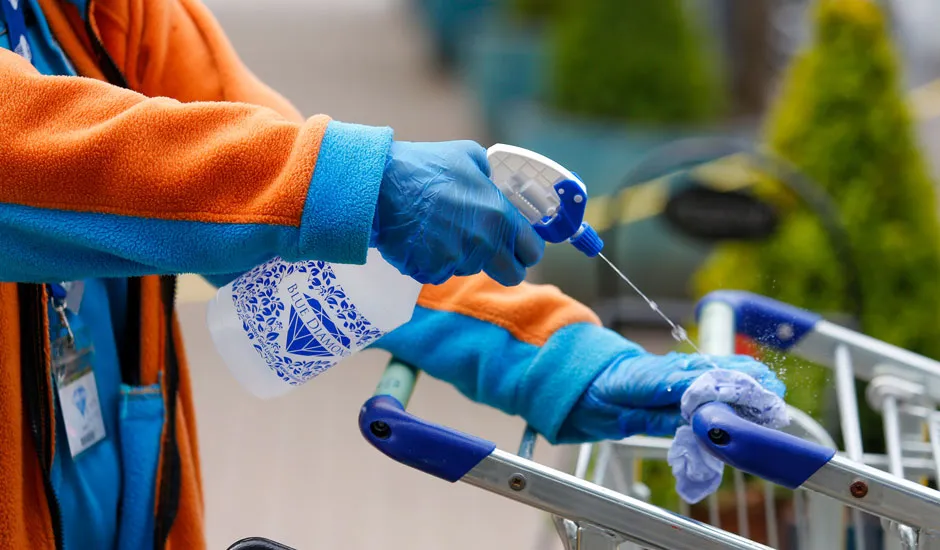To quote a certain Prime Minister, this Christmas ‘tis the season to be jolly careful – even if a coronavirus vaccine is being rolled out.
But what does that actually mean? How can you protect yourself from COVID-19 during a high street hunt for yuletide gifts?
With the help of Dr Jeremy Rossman, lecturer in virology at the University of Kent, here’s a full guide on how to keep yourself safe while Christmas shopping.
Why do you need to wear a face mask?
Yes, they’re mandatory in most UK shops. But it’s worth being reminded why.
“Thecoronavirus is spread through respiratory droplets that leave our mouth and nose when we cough, sneeze, or sometimes even talk," says Rossman.
"The droplets sprayed out by an infected person will contain the virus, which could then enter your body via your mouth, nose or eyes (this is why you shouldn’t be touching your face).”
He adds: “Face masks are the number one thing to prevent this spread."
Read more:
- Can face masks reduce the spread of colds?
- Coronavirus: Wearing a face mask does not give ‘false sense of security’, say experts
One study from MIT using high-speed cameras found that simple puffs of air carry droplets for up to six or eight metres, for coughs and sneezes respectively. Another comprehensive study from the University of Oxford found that face masks can effectively reduce the spread of infectious droplets.
"The evidence is clear that people should wear masks to reduce virus transmission and protect themselves, with most countries recommending the public to wear them,” said Professor Melinda Mills, author of the research.
Be warned, though: a face visor isn’t a substitute for a face mask. As the UK Government says: “This is because face visors or shields do not adequately cover the nose and mouth.”
Also, even though you’re wearing a face mask, keeping a two-metre distance between yourself and other shoppers will lower your risk of infection. Hitting stores at non-peak times will make this easier.
Should you wash your Christmas shopping when you get home?
Thoroughly washing everything you bring home from the shop may slightly reduce your chances of infection, but this isn’t absolutely necessary.
“The risks of coronavirus coming from something you buy and bring home are actually pretty small,” says Rossman. “In a shop, there's not a lot of surface area where an object might be contaminated by somebody who's walking by. And the amount of virus in a droplet is pretty small.
“Also, once that droplet hits a surface, the virus basically starts to die. The risk is still there. But it's small.”

He adds: “You can still wipe down items you bring into the house, or leave them to sit in a corner for a couple of days to decontaminate. I know a lot of epidemiologists still do this, as do I.
“But, overall, the risks are really small.”
Read more:
- COVID vaccine UK: Everything you need to know about the new coronavirus jabs
- Coronavirus can survive for 28 days on phone screens and banknotes
- Mouthwash eliminates coronavirus in 30 seconds… in the lab
Should you clean your trolley or basket before using it?
Absolutely. “That's a high-risk area,” says Rossman. “The person using it before you may have wiped their nose on their hand and then touched it – you don’t know. Cleaning your basket or trolley is always good practice.”

He adds: “Keeping your hands cleanis the other main thing you can do. When you get home, wash your hands or use hand sanitiser before and after unpacking your bags.”
It is unlikely coronavirus can be transmitted from the food you bring home, but, according to the UK government, cooking it thoroughly should kill the virus.
About our expert Dr Jeremy Rossman
An honorary Senior Lecturer in Virology at the University of Kent, Dr Jeremy Rossman and the Founder of Research-Aid Networks. As well as the molecular biology of viruses, Rossman studies trust relations in public health.
Read more:
